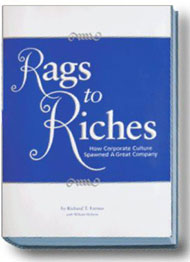I heard this author, Tom Nichols, on the radio one weekend recently and was struck by how cogent his arguments were. So I bought his book, a very 20th century type of behavior, I admit. But I was compelled to do so because he articulates what many of us engaged in public discourse are feeling: in this Trumpian era of fake news and alternate facts, we have reached the point that no one trusts what so-called experts have to say. That’s the title of the book, “The Death of Expertise: The Campaign against Established Knowledge and Why it Matters.” (Oxford.)
He argues that Americans are asserting hostility to real knowledge possessed by scientists, doctors, lawyers, journalists, teachers and foreign policy gurus. Ignorance is hip. “In modern America, policy debates sound increasingly like fights between groups of ill-informed people who all manage to be wrong at the same time,” Nichols writes.
If we don’t like what we hear from an expert on, say, climate change, we just go online and find an opinion that validates what we want to believe. Or we dial in to our favorite cable tv channel to get the same self-affirmation. We don’t have to believe what the experts say because WE are now the experts. “The epidemic of ignorance in public policy debates has real consequences for the quality of life and well-being of every American,” Nichols argues. I would put it in even starker terms: without acceptance of the concept of expertise, our institutions will gradually be eroded and our democracy will become even less functional than it is today.
“The death of expertise is more like a national bout of ill temper, a childish rejection of authority in all its forms coupled to an insistence that strongly held opinions are indistinguishable from facts,” says Nichols, who is a professor of national security affairs at the U.S. Naval War College. I didn’t think that someone with that background could be as knowledgeable as he is about the role of social media and the media in general, but I was wrong.
“Years of better education, increased access to data, the explosion of social media, and lowered barriers to entry into the public arena were supposed to improve our abilities to deliberate and decide,” he writes. “Instead, these advances seem to have made all of this worse rather than better.”
I’m seeing these trends play out in the debates about whether to impose border taxes on imported goods, whether to rip up the North American Free Trade Agreement (NAFTA), whether to keep “aliens” out of America, and whether China can be pressured to send jobs back to America. None of these things make sense. Yet we have grown men and women asserting that they are viable policy decisions.
How can we back away from the precipice? Nichols offers solutions in his final chapter and I will blog separately on those.




